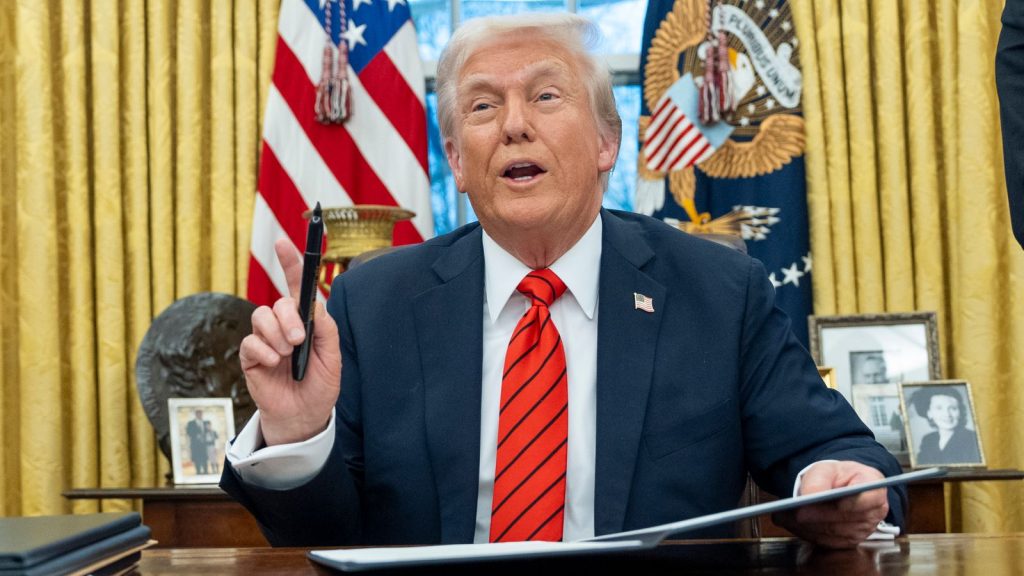In just 50 days, Donald Trump has upended our world. He has torn up rules, attacked allies, and sided with enemies.
A country we once thought had our backs is no longer a reliable partner.
We traveled thousands of miles to explore what this means for our lives and millions of others – from the hot backstreets of Africa to the icy expanses of Greenland and the tense border of Finland with Russia.
Donald Trump‘s supporters, both at home and abroad, view him as the disruptor-in-chief who will bring peace and prosperity, prioritizing America.
However, many others we encountered believe he poses a threat of chaos and a darker future.
While Mr. Trump may be challenging conventions and introducing new ideas, his critics argue that his rapid and erratic actions during his first 50 days in office have weakened America’s global position, leaving it vulnerable to exploitation by adversaries.
Risk of resurgent epidemics in Kenya
Our first stop was Kenya. While the West may focus on Mr. Trump and Russia, in the developing world, the end of US aid is the major concern.
On the frontline of Africa’s battle against HIV, we heard Mr. Trump’s actions being likened to an act of “biological warfare”.
Even among allies and admirers of the American president, there is profound unease and fear about what the future holds, particularly the risk of resurgent epidemics of diseases like HIV, TB, malaria, Ebola, and polio.
In a poverty-stricken neighborhood in Nairobi, we accompanied health workers on their visits, navigating through sewage-filled alleyways into overcrowded buildings.
We met a young mother in a one-room home, Anne, who heavily relies on American aid. Anne is HIV positive and requires daily medication and nutritional support for herself and her one-year-old son. She is deeply anxious about their future due to the cut in US aid.
“I’m so worried,” she shared. “Because if it continues like this, the medication could run out. When the medicine isn’t available, the protection of my body is compromised, leaving me vulnerable.”
‘We had no warning’
Kenya used to receive $850m (£658m) in aid annually, which has now been abruptly cut off. While a US Supreme Court decision against the Trump administration may restore some funding, there is significant uncertainty about the future.
Martha, a healthcare manager in Nairobi, emphasized the consequences: “We were caught off guard. We couldn’t prepare families. It was so sudden.”
“We anticipate more deaths. We anticipate more children dying before the age of five. We anticipate more deaths for children living with HIV, and it’s going to be devastating,” Martha warned, pointing out that over 20,000 children serviced by her organization will be impacted.
83% of all US aid contracts cut
The Trump administration claims the aid has only been suspended for 90 days pending a review. However, in reality, many critical programs seem to have been completely shut down.
Flying 45 minutes west of Nairobi to Kisumu, we witnessed the impact away from major cities, which appeared equally severe.
At a provincial hospital, signs from the US Agency for International Development (USAID) were abundant, but many treatment doors are now closed. The hospital used to be a central location for patients to receive their care, but that is now uncertain.
Staff informed us that some medications only had two months of supplies left, while others had less than a month due to the absence of deliveries.
Doctors reported patients stockpiling drugs out of fear for the future.
‘Biological warfare’
The ammunition supplied by the US for Africa’s fight against HIV, malaria, TB, and other diseases is dwindling. It took decades and billions to combat these diseases and keep them under control. The concern now is a resurgence of epidemics that have been dormant for years.









